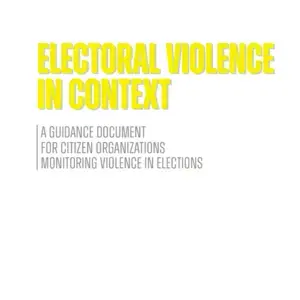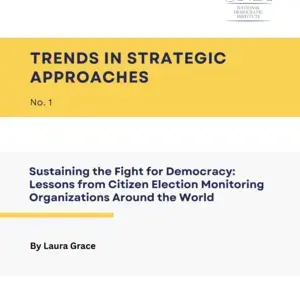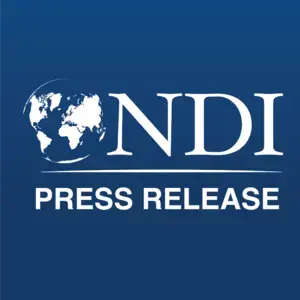Jesper Frant, [email protected], U.S./Signal App +1-303-808-5716, Tunisia +216 58 188 575
TUNIS, Tunisia — Today, the National Democratic Institute (NDI) and International Republican Institute (IRI) joint international Election Observation Mission, released its preliminary statement with findings and recommendations following Tunisia’s presidential election. The delegation, led by IRI President Dr. Daniel Twining, Former Member of Parliament for the Scottish Labour Party Margaret Curran and NDI Middle East and North Africa Director Les Campbell, issued recommendations including the need for clear and consistently enforced campaign laws, further efforts to educate and mobilize voters, and responsive governance that can address citizens’ economic and security concerns.
Tunisia’s presidential election held many democratic milestones, including the first televised presidential debates in the Arab world and a record number of registered voters. Tunisians were able to participate in a well-administered election despite a shortened electoral timeline. However, unclear and unevenly enforced campaign regulations impeded voters’ ability to engage directly with candidates. The highly contested election was also conducted against a backdrop of economic stagnation and disappointment in the pace of reform.
“Tunisia is a rare beacon of democracy in the Arab world, and the country has made very impressive strides in the right direction since the Jasmine Revolution. Voters enjoyed genuine choice in an environment of robust political competition,” said Twining. “However, in some cases, unclear and arbitrarily enforced campaign laws limited candidates’ right to free speech and ability to connect with voters.”
“The elections were remarkable in that the election process took place without any significant security incidents or major irregularities,” said Curran. “That said, citizens deserve a level playing-field and consistent application of the rules to all candidates.”
“Democracy is not just about elections,” said Campbell. “Citizens have expressed a desire to elect a candidate who can make democracy deliver and improve the lives of ordinary Tunisians.”
In the spirit of international cooperation, the IRI/NDI joint international election observation mission issued a preliminary statement on the general elections with a list of recommendations on how to strengthen the election process. The joint mission stresses that the statement is preliminary and recognizes that, ultimately, it is the people of Tunisia who will determine the credibility of these elections.
Click here to download the full report.
###
The National Democratic Institute (NDI) is an independent, nonprofit, nonpartisan organization working to support and strengthen democratic institutions worldwide through citizen participation, openness and accountability in government. More information is available at www.ndi.org.
A nonprofit, nonpartisan organization, the International Republican Institute (IRI) advances freedom and democracy worldwide by helping political parties to become more responsive, strengthening transparent and accountable governance, and working to increase the role of marginalized groups in the political process – including women and youth. More information is available at www.iri.org.




